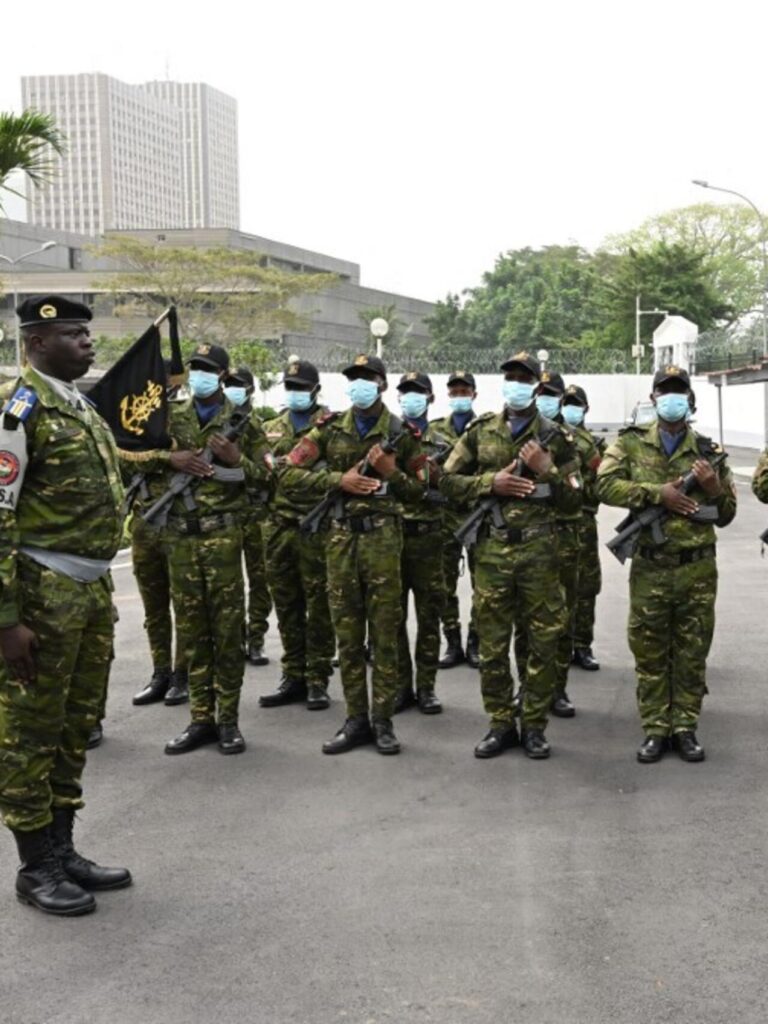Is Francafrique Ending? Senegal Cuts Military Ties with France
In a significant pivot in its foreign relations, Senegal has announced the termination of military agreements with France, marking a critical juncture in the long-standing ties between Paris and its former colonies in Africa. This decision, which raises questions about the future of FrancafriqueŌĆöa term that encapsulates the complex interplay of post-colonial relationshipsŌĆöcomes amid growing anti-French sentiment across the continent and a shift towards greater sovereignty among African nations. As Senegal reassesses its military partnerships, this move signals not only a critical reassessment of historical allegiances but also reflects a broader trend of realignment as African countries increasingly seek to redefine their identities and assert their independence. Al Jazeera explores the implications of this decision for Senegal, its regional neighbors, and the enduring legacy of colonial influence in Africa.
End of an Era: Understanding Senegal’s Shift Away from French Military Partnership
The recent decision by Senegal to scale back its military partnership with France marks a significant turning point in the dynamics of post-colonial relationships in West Africa. This change comes amidst growing nationalist sentiments and widespread calls for sovereignty, echoing a broader trend across the continent where former colonies seek to redefine their ties with old colonial powers. The shift away from reliance on French military support aligns with SenegalŌĆÖs desire to enhance its national security by developing indigenous military capabilities and forging new alliances beyond its traditional partners.
Key factors influencing this transition include:
- Increased Nationalism: A rising consciousness among Senegalese citizens regarding historical injustices has fueled demands for a complete re-examination of foreign military influence.
- Security Concerns: Persistent threats from extremist groups in the Sahel region have prompted Senegal to prioritize its military independence and explore partnerships with nations like the United States and European allies.
- Regional Cooperation: Strengthening ties with neighboring countries to build a united front against common challenges has been suggested as a more sustainable solution to security issues.
To further illustrate the evolving security landscape, the table below outlines Senegal’s current and potential future military partnerships:
| Country | Partnership Focus | Status |
|---|---|---|
| France | Training and Operations | Reducing presence |
| United States | Counter-Terrorism | Expanding collaboration |
| Mali | Joint Military Exercises | Potential future alliance |
| Morocco | Naval Cooperation | Exploring possibilities |
Shifting Alliances: The Implications of Senegal’s Decision on Regional Stability
The recent decision by Senegal to sever military ties with France signals a significant shift in West Africa’s geopolitical landscape. This move may not only reshape SenegalŌĆÖs defense strategy but also ripple across the region, potentially leading to increased instability. Key implications include:
- Power Dynamics: The withdrawal could embolden neighboring nations to shift their alliances and reassess their reliance on former colonial powers.
- Non-Aligned Policy: Senegal’s strategic pivot may encourage other African countries to adopt a similar non-aligned stance, fostering unity against external influence.
- Evolving Threats: As regional security challenges evolve, Senegal’s decision may prompt a recalibration of military cooperation with emerging powers such as China and Russia.
In light of these developments, understanding the broader context of regional stability is crucial. A closer examination of military expenditures shows a growing inclination among West African nations to invest in their own defense capabilities, reducing dependence on foreign assistance. Below is a brief overview of military budgets in the region:
| Country | Military Budget (USD) | Change (Year-on-Year) |
|---|---|---|
| Senegal | $450 million | +5% |
| Mali | $300 million | +10% |
| Nigeria | $1.2 billion | +2% |
| C├┤te d’Ivoire | $530 million | +3% |
Historical Context: The Legacy of Francafrique and Its Impact on West African Nations
The relationship between France and its former colonies, often referred to as Francafrique, has been a contentious one characterized by complex power dynamics and economic dependencies. Emerging from the colonial era, this arrangement has been marked by France’s sustained influence in West African politics, military affairs, and economic systems. The legacy of Francafrique includes a series of military agreements, political alignments, and economic collaborations that have shaped the governance and stability of nations such as Senegal, Mali, and C├┤te d’Ivoire. However, as these nations seek to assert their sovereignty, resentment over perceived neocolonial practices has prompted calls for a reevaluation of these long-standing ties.
Recent developments indicate a significant shift, with SenegalŌĆöa key player in the regional political landscapeŌĆötaking deliberate steps to sever military ties with France. This move not only exemplifies a broader regional yearning for independence and self-determination but also highlights a growing trend among West African nations to prioritize regional partnerships over former colonial relationships. As countries like Niger and Burkina Faso align themselves with Russian support, the implications of this transition are profound, impacting security frameworks and the geopolitical landscape in West Africa. The diminishing reliance on French military support is emblematic of a larger transformation that could redefine West Africa’s march towards true autonomy.
Looking Ahead: Strategies for Senegal’s Sovereign Military Development and International Cooperation
In light of recent geopolitical shifts, Senegal is poised to reshape its military landscape while fostering enhanced international cooperation. The country’s strategy revolves around three core initiatives: modernizing its defense capabilities, diversifying partnerships, and promoting regional security dialogues. By investing in indigenous military technology and strengthening its defense industry, Senegal aims to reduce reliance on external powers. This initiative aligns with a broader goal of achieving greater autonomy and self-sufficiency in national defense.
Furthermore, diving into international partnerships beyond traditional alliances will be crucial for Senegal to forge a path forward. Engaging with emerging powers such as China, Turkey, and the United States provides a platform for technological transfer and resource sharing. To support this vision, Senegal will embrace multilateral forums and collaborative exercises that address shared security challenges across West Africa. The following table outlines key focus areas in Senegal’s military development strategy:
| Focus Area | Description |
|---|---|
| Modernization | Upgrading equipment and training for personnel. |
| Diversification | Exploring partnerships with global powers. |
| Regional Cooperation | Initiating dialogues with West African nations. |
Closing Remarks
In conclusion, Senegal’s decision to reassess its military ties with France marks a significant shift in the complex historical relationship between the two nations. As Francafrique’s influence dwindles, this move signals a growing desire among African nations to redefine their partnerships and assert greater autonomy. Analysts suggest that this development may inspire other countries in the region to follow suit, potentially reshaping the geopolitical landscape in West Africa. As Senegal navigates this new trajectory, the long-term implications for both its domestic stability and international alliances remain to be seen. The evolving dynamics of post-colonial relationships continue to captivate attention, posing critical questions about sovereignty, collaboration, and the future of African diplomacy.




